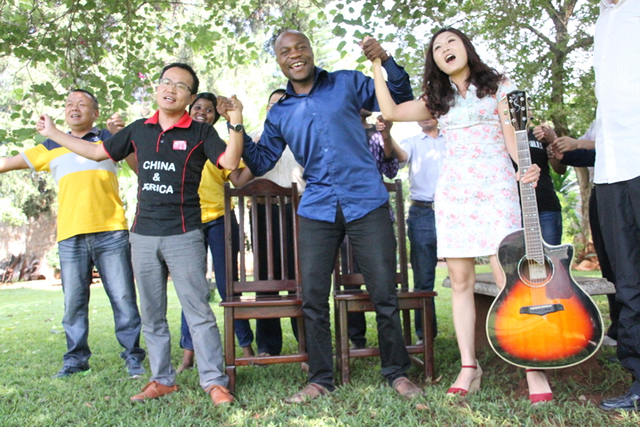PSL licensing reforms under the spotlight

Petros Kausiyo Deputy Sports Editor
AS Premier Soccer League clubs converge today to choose a new leader to succeed Twine Phiri, the board of governors will also come under scrutiny over their commitment to implementing the CAF Club Licensing resolutions they recently adopted.
The PSL club chiefs will this morning meet at a Harare hotel to elect a new chairman to replace Phiri who had to step down on a constitutional technicality.
It will be a two-horse race between Dynamos president Kenny Mubaiwa and Highlanders chairman Peter Dube and only those holding the position of club chairman or president will be eligible to vote in today’s election.
With no provision for proxy votes, it means those representing absent governors can only observe the elections as the PSL have now become stricter that just in line with club licensing only the key decision makers need to take part in deliberation of the board.
Dube is currently the league’s vice-chairman having been voted into office in 2014 and the Bosso boss has been preaching continuity to the electorate, promising them to carry on the same path his board had been following under the leadership of Phiri.
Mubaiwa, who has previously lost in his bid to become the PSL chairman believes he is now more than ripe to “take the league’s leadership to another level’’.
The pair has in the last fortnight stepped up their campaign trails including door to door visits to member clubs and the results of their intense canvassing should be known by about midday today when the ZIFA Electoral Committee complete the counting.
Both men have also acknowledged the fine work that Phiri did in steering the league into becoming an attractive brand and respectively to the electorate their duty would be more to do with strengthening the top-flight body’s position on the market and as a window through which Zimbabwean football is viewed.
Although the highlight of the meeting is the election to choose Phiri’s successor, it is not the only item on the agenda as the PSL are also looking to discuss other key issues pertaining to the governance of football in the elite league.
Apart from casting their ballots the club bosses must discuss the PSL audited accounts which have been completed by their external auditors — Grant Thornton.
The elite league also need to table resolutions made at the club licensing indaba, some of which need to be addressed before the start of the 2016 season April 2.
PSL chief executive Kenny Ndebele noted yesterday that there were a number of timelines which the clubs had been given which they needed to implement in line with the moves to give a more professional outlook to the way the teams are administered.
These include the requirement to have offices, produce proof of lease agreements with stadium owners and for clubs to submit their statutes.
“At the workshop, clubs were asked to do the timelines on club licensing, but the PSL board want it to be uniform so that we do not have one club saying they will implement by July 31 another gives a date in August and the other in October. They want everyone to work within the same timelines.
“Of course audited financial statements might take a while, but here things like offices, provision of statutes and lease agreements with stadium owners. Stadia that do not meet the minimum requirements will not be used.
“Youth development should also be well documented and give an indication of how they are going about having youth teams. There are some teams that already have youth teams, but these that do not have such teams need to put them in place,’’ Ndebele said.
The PSL chief executive also revealed that they had approached corporate partners to come on board and fund an Under-19 League in line with their vision to give young talent a platform to play regularly.
“We have already engaged corporates to sponsor the Under-19 league so that it is modelled along the lines of the of the South African reserve league.
“The Harare Declaration already stipulates that five junior players must be registered with clubs.
“Clubs should also be registered with tax authorities and part of the resolutions also include that cubs should be a separate entity from the parent company and with a different logo for instance a club ZPC Kariba should exist as a separate entity from the Zimbabwe Power Company which is the parent company,’’ Ndebele said.









Comments